When to Replace Your Space Heater: Safety and Efficiency Considerations
When deciding whether to replace your space heater, consider key signs of wear and inefficiency. These include persistent odd smells, discoloration, overheating, unusual noises, and increased energy consumption.
A space heater that frequently trips the circuit breaker or has visible damage should be replaced immediately to ensure safety. Modern space heaters offer improved safety features like automatic shut-off and tip-over switches, increased energy efficiency with programmable thermostats, and smart tech integration for convenience.
Regular maintenance, such as cleaning and inspection, can extend the life of your new heater. Dispose of old units responsibly by following local regulations, recycling, or donating if still functional.
Always prioritize safety and efficiency when evaluating your space heater’s condition.
When to Replace Your Space Heater – Safety, Performance, Cost
Recognizing the signs that your space heater needs replacement is crucial for maintaining a safe and comfortable environment. Here are some indicators that it might be time to start shopping for a new model:
Safety Concerns – Fix or Replace Immediately!
- Strange Smells: A burning or unusual smell coming from your heater is a clear sign that something is wrong. While a slight odor is common when turning on a heater for the first time each season due to dust, persistent smells are a warning.
- Sparking or Flames: Seeing sparks or flames other than the intended heating element is a serious safety hazard. Turn off the heater immediately and unplug it.
- Discoloration: If parts of your heater are changing color, particularly to a brown or black shade, it could be a sign of overheating and potential fire risk.
- Tripping Circuit Breaker: Frequent electrical trips can indicate that your heater is drawing more power than it should, which could be due to internal faults.
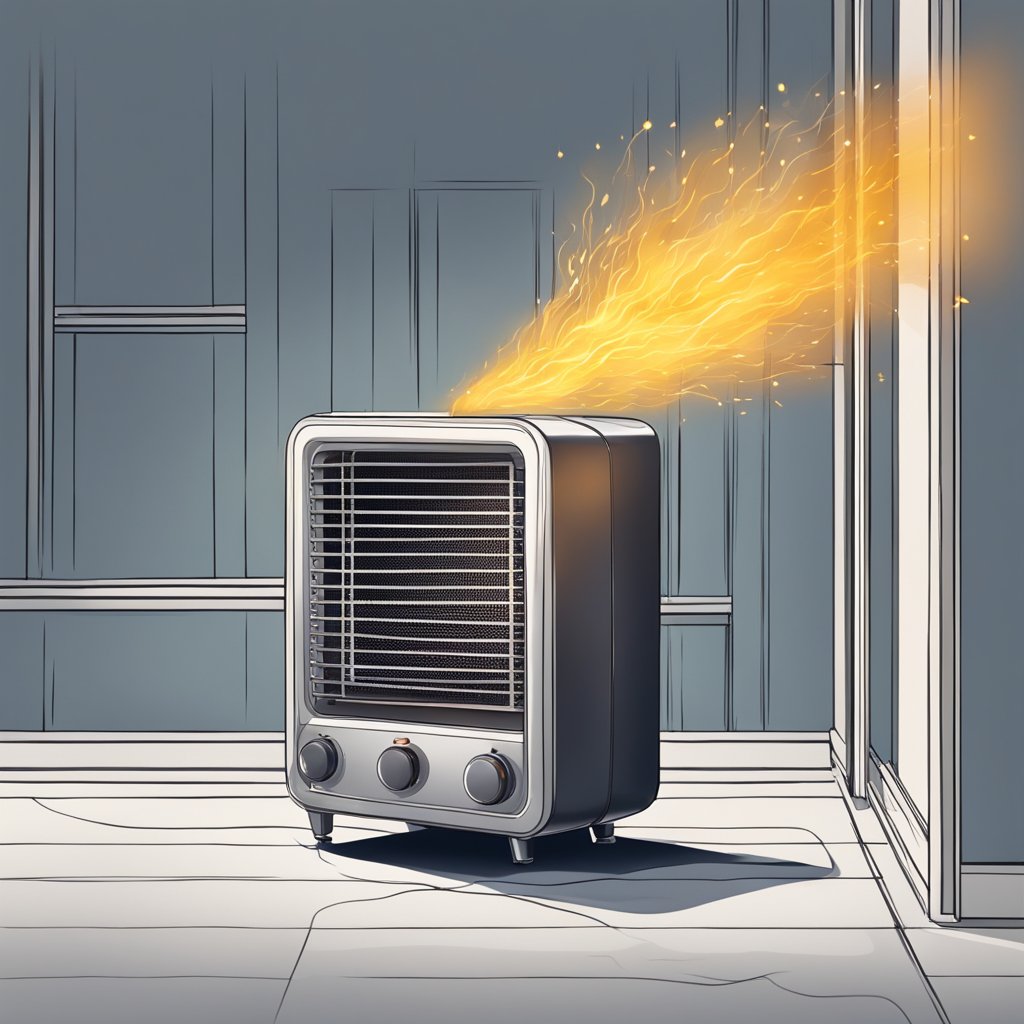
Performance Decline – Fix or Consider Replacing
- Insufficient Heating: When a heater struggles to warm up a room as effectively as it used to, its efficiency is likely compromised, and it might be time for an upgrade.
- Frequent Cycling: If your heater turns on and off more than usual, it could be struggling to maintain the desired temperature, suggesting a malfunction.
- Noise Increase: Unusual sounds like rattling, clicking, or buzzing can indicate loose internal components or debris within the heater.
Cost Inefficiency – Consider Replacing in the Future
- Rising Electricity Bills: An older space heater can become a drain on electricity, leading to increased energy costs. Newer models are often designed to be more energy-efficient.
- Repair Costs: If you find yourself frequently spending money on repairs, it’s a good financial decision to invest in a new heater instead of maintaining an old one.
It’s vital to heed these warnings seriously. A malfunctioning space heater is not just a matter of comfort, but one of safety. In the next part, we’ll delve into the risks associated with postponing the replacement of your space heater.

Lifespan of Space Heaters
When you first purchase a space heater, it’s hard to imagine a time when it won’t be there, radiating warmth into your home.
However, like all appliances, space heaters don’t last forever. It’s essential to know how long you can expect your heater to last and what factors contribute to its longevity.
Average Lifespan of a Space Heater
The typical space heater has a lifespan of 3 to 10 years. However, this range can vary significantly depending on several factors. High-quality models from reputable brands often have the longevity to reach or even exceed the upper end of this range, particularly with proper care and maintenance.
Factors Influencing Lifespan:
- Usage: How often and for how long you use your space heater will have a considerable impact. Frequent use over extended periods can wear out components faster.
- Maintenance: Regular cleaning to remove dust and lint, ensuring adequate ventilation, and checking for loose or worn parts can prolong your heater’s life.
- Storage: How and where you store your heater when not in use matters. A dry, clean space can prevent rust and keep your heater in good condition.
- Type of Heater: Different heaters — ceramic, infrared, oil-filled — have varying lifespans due to their unique mechanisms and component durability.
- Handling: Gentle use, avoiding drops or harsh movements, and following the manufacturer’s instructions contribute to a longer lifespan.
- Quality: As with most things, you get what you pay for. Investing in a higher-quality space heater may cost more upfront, but it can save you money and hassle in the long run.
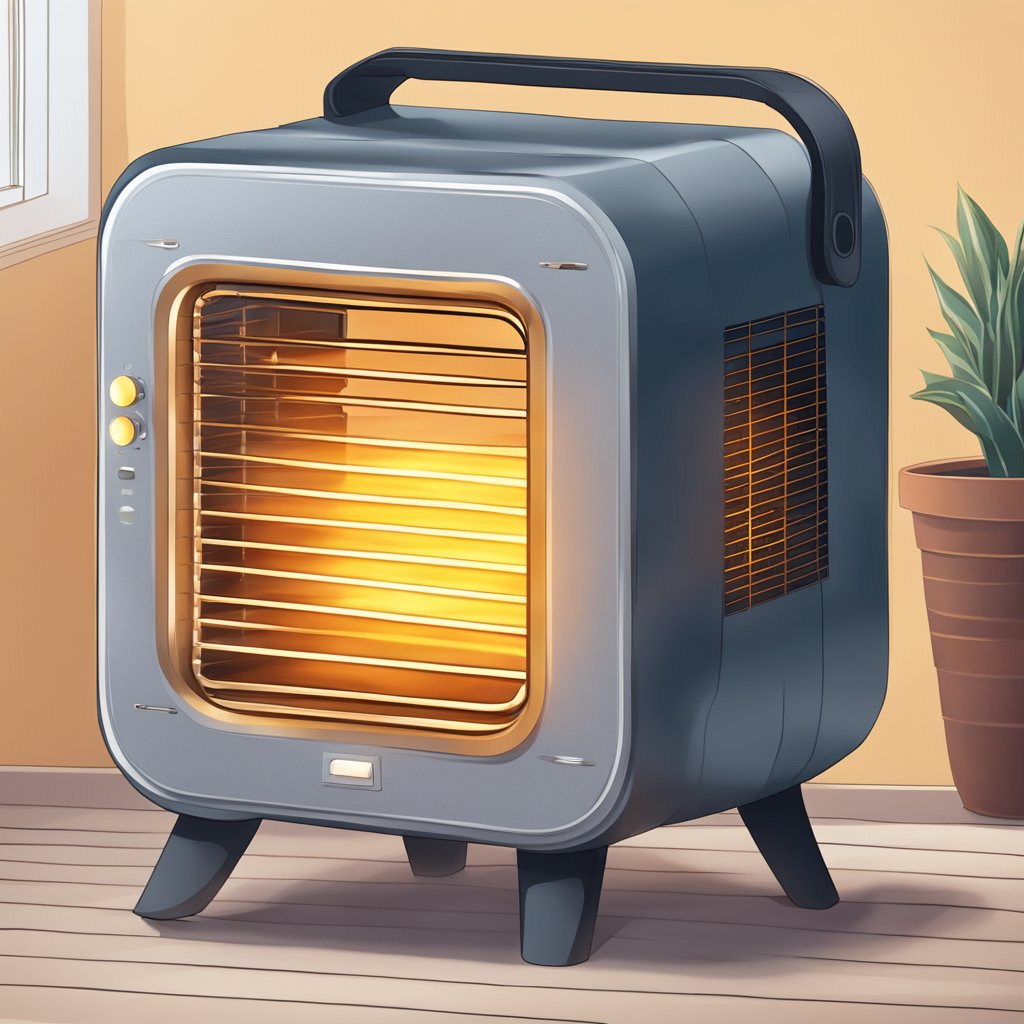
Assessing Your Space Heater’s Age
If you’ve been using your space heater for several years and are noticing it’s not performing as well as it once did, it may be nearing the end of its effective life.
Keep track of the purchase date and monitor its performance as it ages. When you start noticing consistent issues, it’s time to start considering a replacement.
Potential Risks with Not Replacing Your Space Heater
Delaying the replacement of an outdated space heater not only compromises your comfort but can pose significant risks. Understanding these risks can help you make an informed decision about when to replace your device.
- Fire Hazards: Worn or faulty space heaters are a leading cause of home heating fires. Components that are degraded or damaged can overheat, sparking a fire.
- Carbon Monoxide Poisoning: Combustion-based space heaters that are not functioning correctly can emit carbon monoxide, a colorless, odorless gas that can be deadly if inhaled in large quantities.
- Electrical Hazards: Old or damaged heaters can have frayed wiring, which poses a risk of electric shock or electrocution.
- Inefficiency and Cost: Older heaters can be less efficient, using more energy to produce less heat. This inefficiency leads to higher utility bills and is also less eco-friendly.
- Air Quality: Heaters that are failing can release pollutants into the air, which can be especially harmful to those with respiratory issues.
- Decreased Comfort: A malfunctioning heater can struggle to maintain consistent temperatures, leading to an uncomfortable living environment.
- Statistics and Reports: Citing statistics from fire departments or safety organizations can provide credibility and emphasize the importance of heater maintenance and timely replacement.
Understanding these risks reaffirms the importance of being vigilant about the condition of your space heater. In the following section, we will explore the benefits of upgrading to a new model, not only for improved safety but also for better efficiency and advanced features.
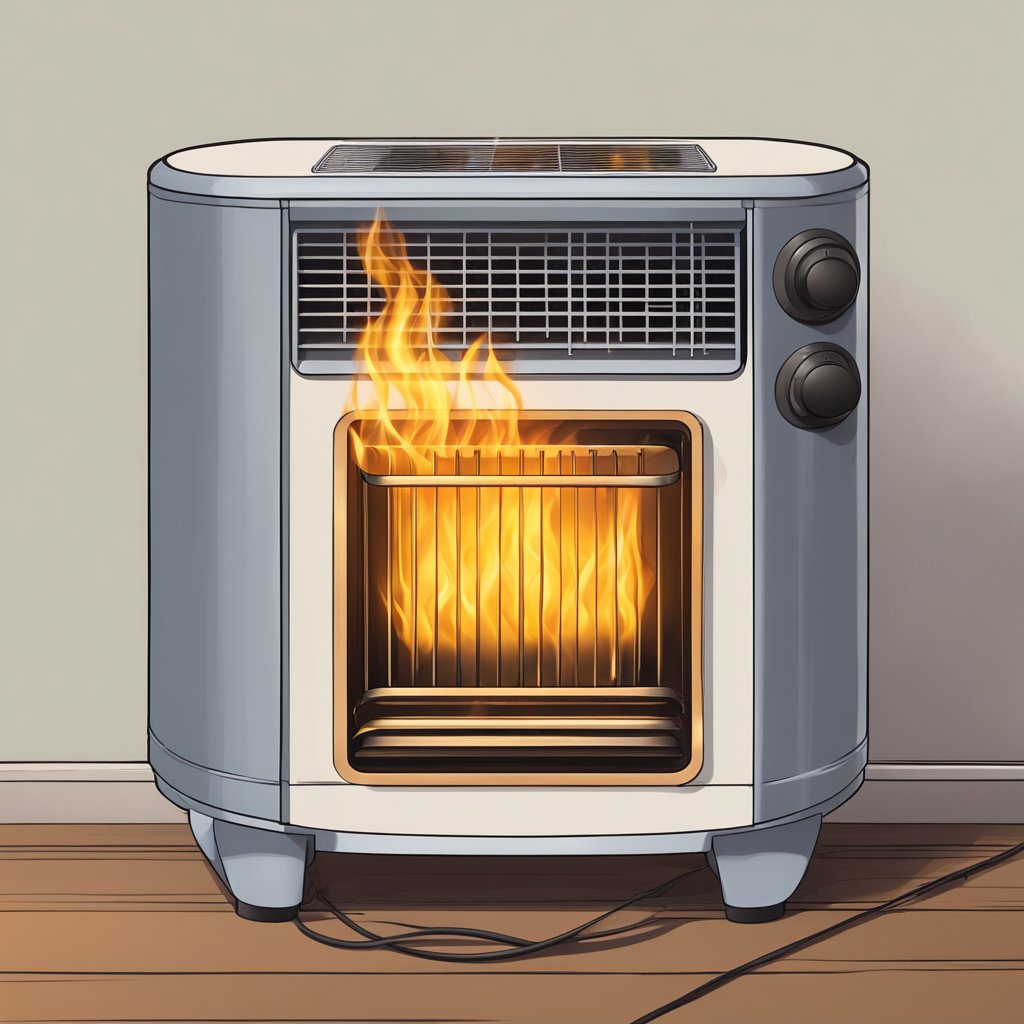
Potential Benefits of Upgrading to a New Space Heater
Replacing an old space heater is not just about mitigating risks; it also brings several benefits that can enhance your comfort and well-being. Here are the advantages of upgrading to a new model:
Enhanced Safety Features
- Advanced Overheat Protection: Newer space heaters come equipped with automatic shut-off systems that activate when the heater gets too hot, reducing the risk of fire.
- Tip-over Switches: Modern heaters often include a tip-over switch that turns the heater off if it’s knocked over, an essential feature for homes with pets and children.
- Cool-to-the-touch Surfaces: Many new models are designed with exterior materials that remain cool during operation, minimizing burn risks.
Improved Energy Efficiency
- Programmable Thermostats: Contemporary space heaters with programmable thermostats allow for better temperature control and can reduce energy consumption by heating only when needed.
- Energy-saving Modes: Look for models with eco-modes that adjust heating output to conserve energy while maintaining comfort.
- Better Materials and Technology: The latest heaters use more efficient materials and technologies that translate into quicker heating times and lower electricity usage.
Smart Features
- Wi-Fi Connectivity: Some space heaters can be controlled remotely via smartphone apps, allowing you to adjust settings on the go.
- Voice Control Integration: Integration with virtual assistants like Amazon Alexa or Google Home lets you control the heater with voice commands.
- Timers and Scheduling: Set your heater to turn on or off at specific times for convenience and further energy savings.
Upgrading to a new space heater not only ensures you’re warm during the cold months but also offers improved safety, efficiency, and modern conveniences. In the next section, we will guide you on choosing the right replacement that aligns with your needs and preferences.
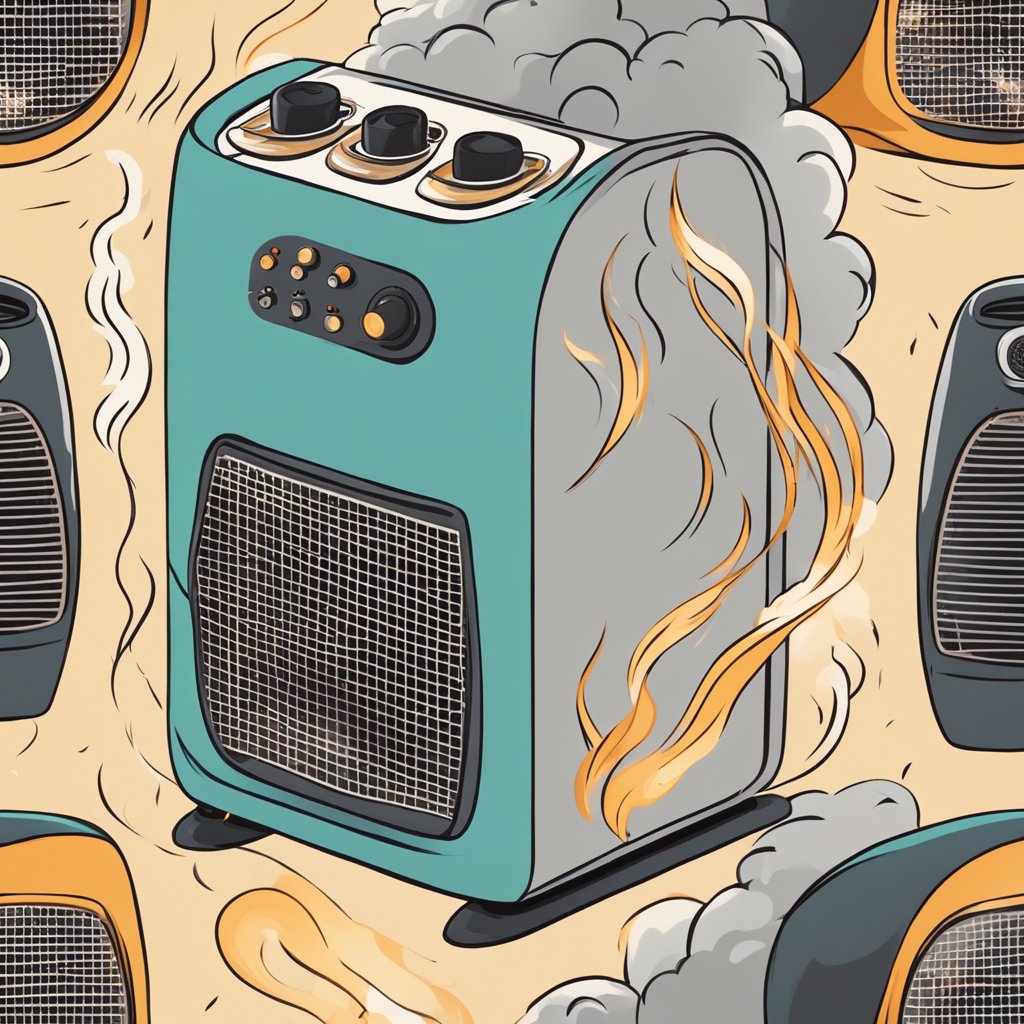
How To Choose a Replacement Space Heater
Investing in a new space heater is an important decision. With the variety of options available, it’s essential to choose one that best suits your needs and contributes to a safe, comfortable, and energy-efficient home.
Here’s what to consider when selecting your new space heater:
- Assess Your Space: Consider the size of the room you need to heat. A heater’s wattage typically determines its heating capacity, so choose a model powerful enough to warm your space efficiently.
- Heater Type: Space heaters come in various types, including convection (for whole-room heating), radiant (for spot heating), and combination heaters. Select a type based on the specific heating needs of your space.
- Energy Efficiency: Look for heaters with energy-saving features such as adjustable thermostats, programmable timers, and low-energy modes to keep your utility bills in check.
- Safety Features: Prioritize models with safety features like automatic shut-off, overheat protection, and cool-touch exteriors. If you have children or pets, a model with a tip-over switch is advisable.
- Noise Level: Consider the noise level if you’re sensitive to sound or plan to use the heater in a bedroom or quiet environment. Some models are designed to operate quietly.
- Portability: If you plan to move the heater between rooms, look for lightweight models with carry handles or casters.
- Brand and Warranty: Choose a reputable brand that offers a solid warranty. A good warranty can provide peace of mind and protection for your investment.
- Expert Reviews and Recommendations: Research expert opinions and consumer reviews to understand the performance and reliability of different models.
- Cost: Balance the upfront cost of the heater with the long-term energy savings and durability. Sometimes, spending a bit more upfront can save you money down the line.
- Aesthetics: While functionality should be the primary concern, the heater’s appearance matters too, especially if it will be a visible part of your living space.
By carefully considering these factors, you can select a space heater that provides warmth and comfort efficiently and safely. In the following section, we will discuss the importance of properly disposing of your old space heater.
How To Properly Dispose of an Old Space Heater
Once you’ve decided to replace your space heater, it’s important to dispose of the old one responsibly. Proper disposal ensures safety, environmental protection, and compliance with local regulations. Here’s how to do it right:
- Check Local Disposal Regulations: Your municipality may have specific rules for disposing of electronic and heating appliances. Contact your local waste management authority for guidelines.
- Recycling Programs: Many communities offer electronics recycling programs that accept space heaters. These programs ensure that hazardous materials are handled safely and that recyclable parts are reclaimed.
- Retailer Take-Back: Some retailers offer take-back programs for old appliances when you purchase a new one from them. This is often an easy and responsible way to dispose of your old heater.
- Donation: If your space heater is still working but you’re upgrading, consider donating it to a local charity or community center. Always ensure the heater is safe to use before donating.
- Service Centers: Check if the manufacturer of your space heater has a service center that accepts old models for disposal or recycling.
- Hazardous Waste Facilities: For space heaters that are non-functional and cannot be recycled, take them to a hazardous waste facility where they can be disposed of without harming the environment.
- Avoid Regular Trash: Do not throw your space heater in the regular trash. Space heaters contain metals and other components that may be harmful if not disposed of properly.
By following these steps, you can ensure that your old space heater is disposed of in a manner that’s safe for you and the environment. Next, we will provide maintenance tips to help you extend the lifespan and efficiency of your new space heater.
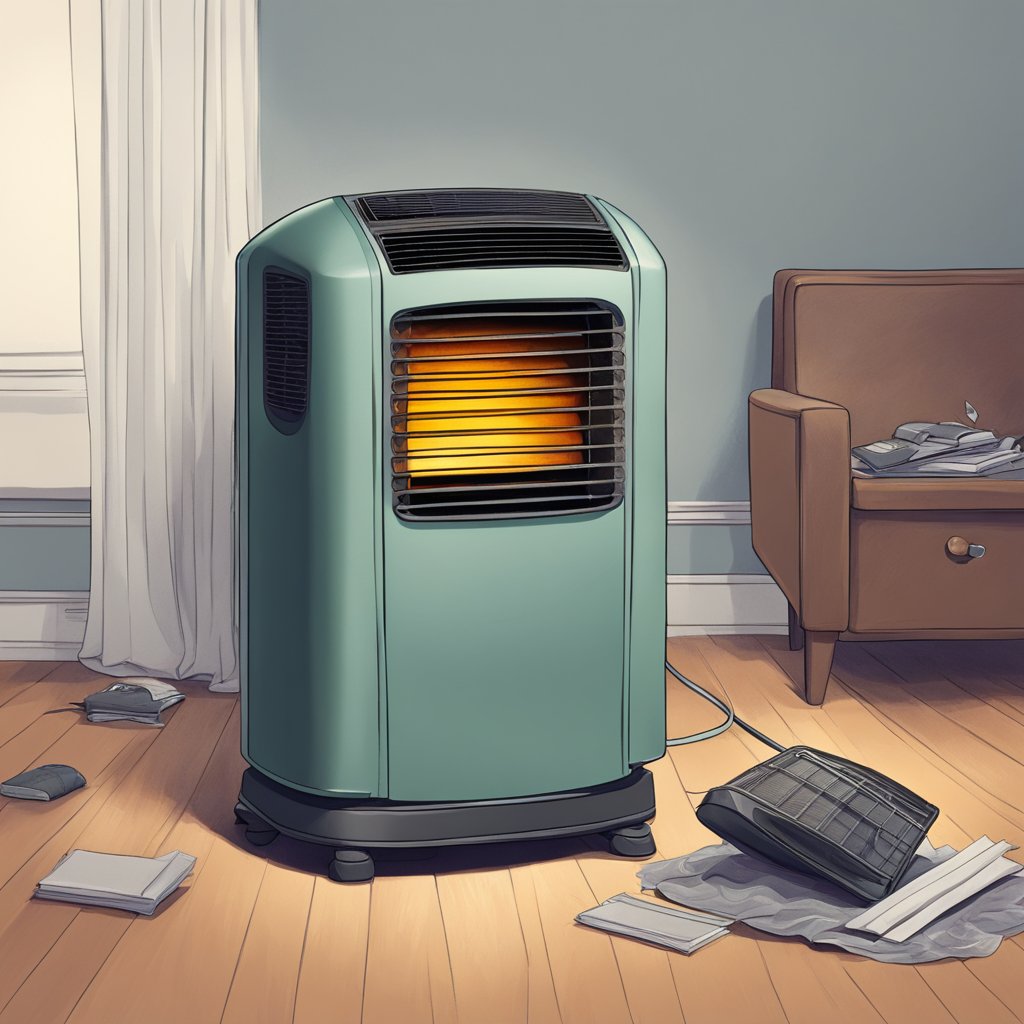
Maintenance Tips to Extend Your New Space Heater’s Lifespan
Proper maintenance is key to ensuring your new space heater operates safely and efficiently for as long as possible. Here are some maintenance tips to keep your heater in top condition:
- Regular Cleaning: Dust and debris can accumulate on your heater and cause it to work harder than necessary. Turn off and unplug the heater, then use a vacuum with a brush attachment to gently remove dust from the surface and vents.
- Inspect for Damage: Periodically check the cord, plug, and any visible parts for signs of wear or damage. If you notice any issues, have the heater repaired or replaced.
- Adequate Spacing: Always maintain adequate clearance around the heater to ensure proper airflow and to prevent overheating. Keep it at least three feet away from furniture, curtains, and other flammable materials.
- Store Properly: When not in use, especially during warmer months, store your heater in a cool, dry place to prevent rust or electrical issues.
- Follow Manufacturer’s Instructions: Use the heater only as directed in the user manual. Overloading circuits or using the heater in a manner not recommended by the manufacturer can lead to problems.
- Annual Checkups: Consider having your heater checked by a professional annually, especially if it’s a model that uses combustion (like propane heaters), to ensure it is operating safely.
- Stay Attentive: Always turn off the space heater when leaving the room or going to sleep. Unattended heaters are a common cause of home heating fires.
- Upgrade When Needed: Despite all efforts to maintain your space heater, be prepared to replace it when it shows signs of malfunction or when it reaches the end of its expected lifespan.
By following these maintenance tips, you can enjoy the warmth and comfort of your space heater while minimizing the need for repairs or premature replacement.
Conclusion
Space heaters are a convenient way to add warmth to your space, but they require attention to ensure they operate safely and efficiently.
Knowing when to replace your space heater and how to maintain the new one can keep you cozy without unnecessary risk or expense. We hope this guide has helped you understand the life cycle of space heaters and how to manage their replacement responsibly.
Check Out Our Complete Guide to Space Heaters!
If you enjoyed this post, check out our complete guide to space heaters for more information on space heater types, safety features, troubleshooting common issues, and how to choose the right space heater for your needs!
Let Us Know How We’re Doing!
Did this expertly prepared resource answer your question?
Do you have another question about home maintenance, home improvement projects, home appliance repair, or something else?
Get more information, send in questions and keep the discussion going by contacting the I’ll Just Fix It Myself company customer service team at at 1-800-928-1490 or Email us at [email protected]
